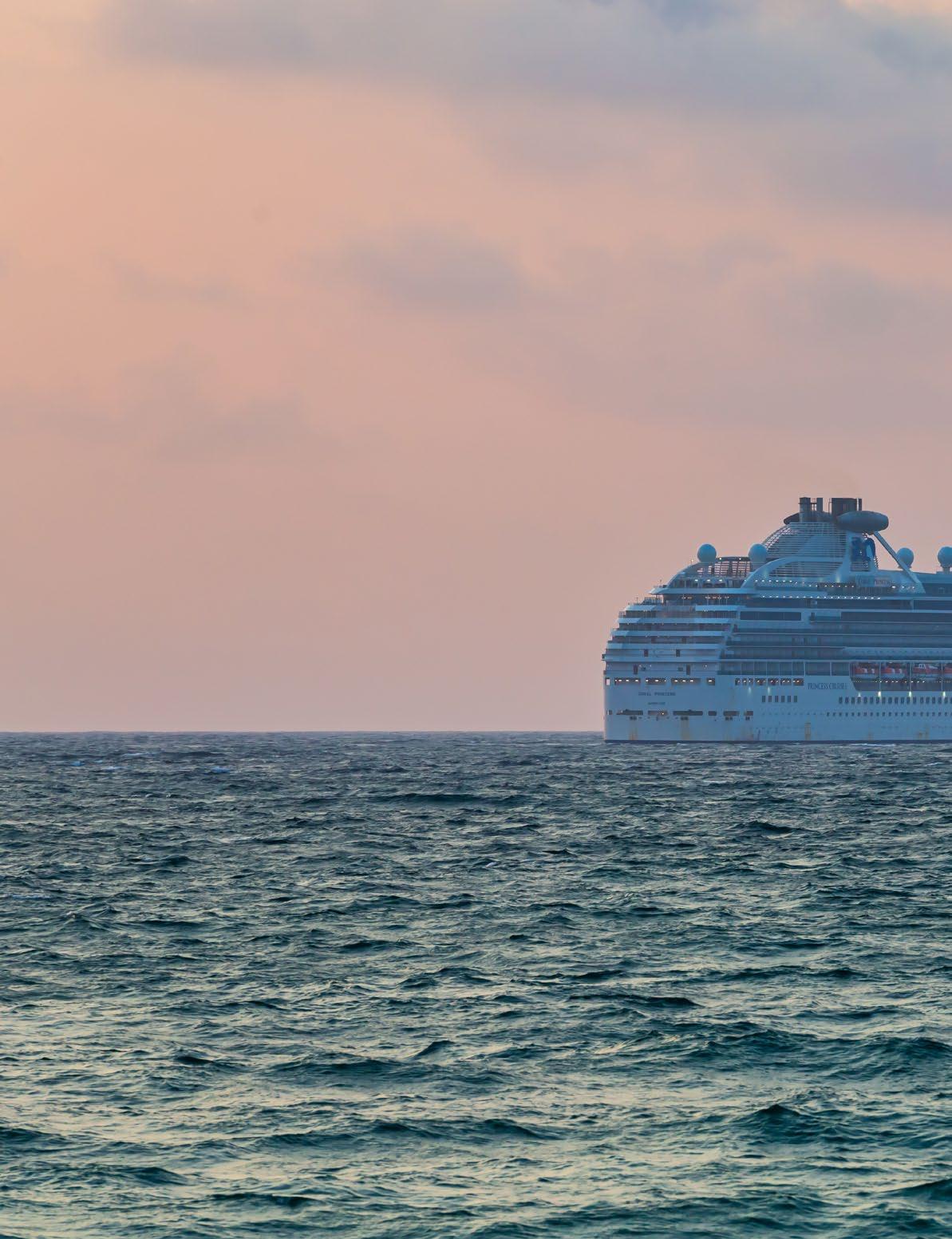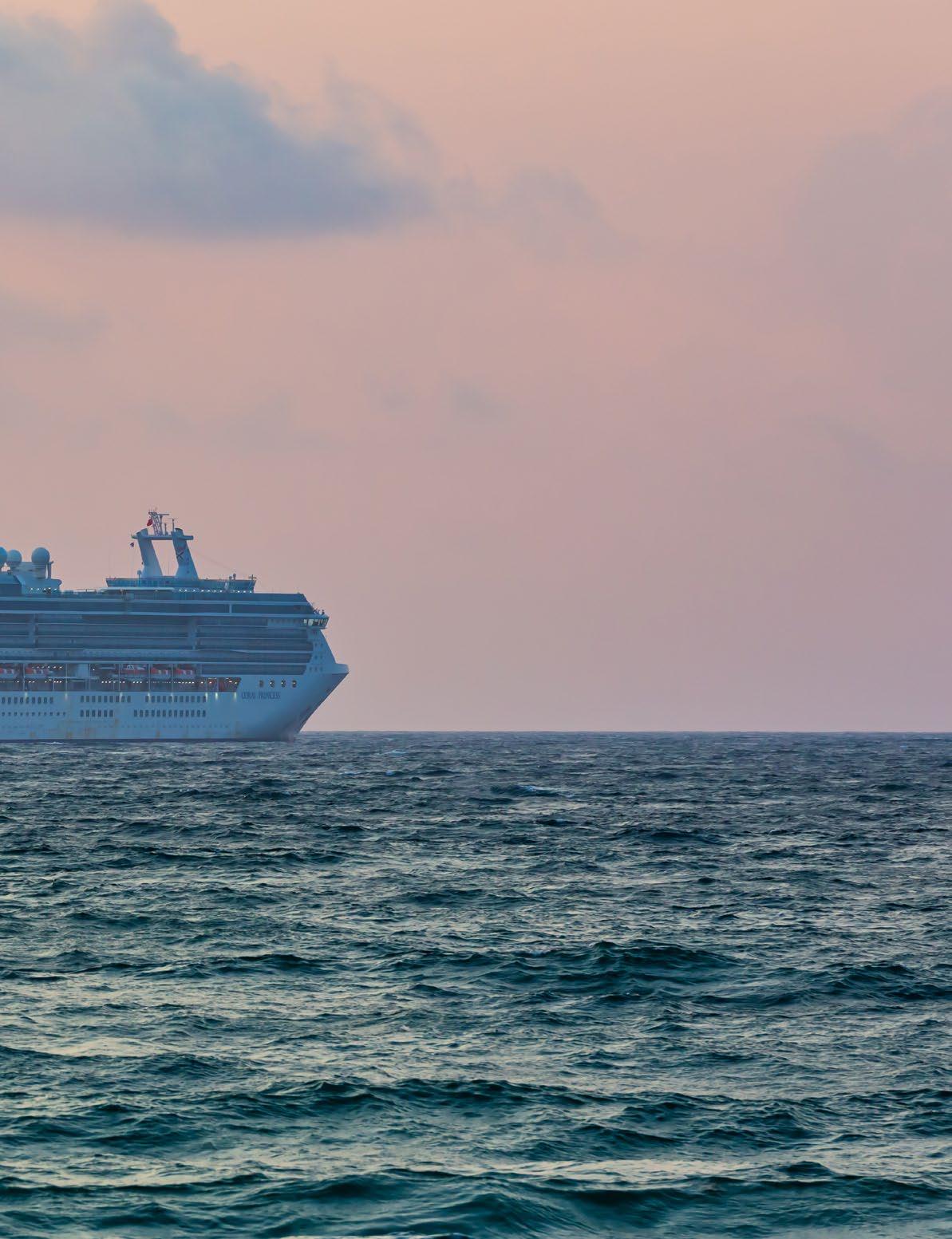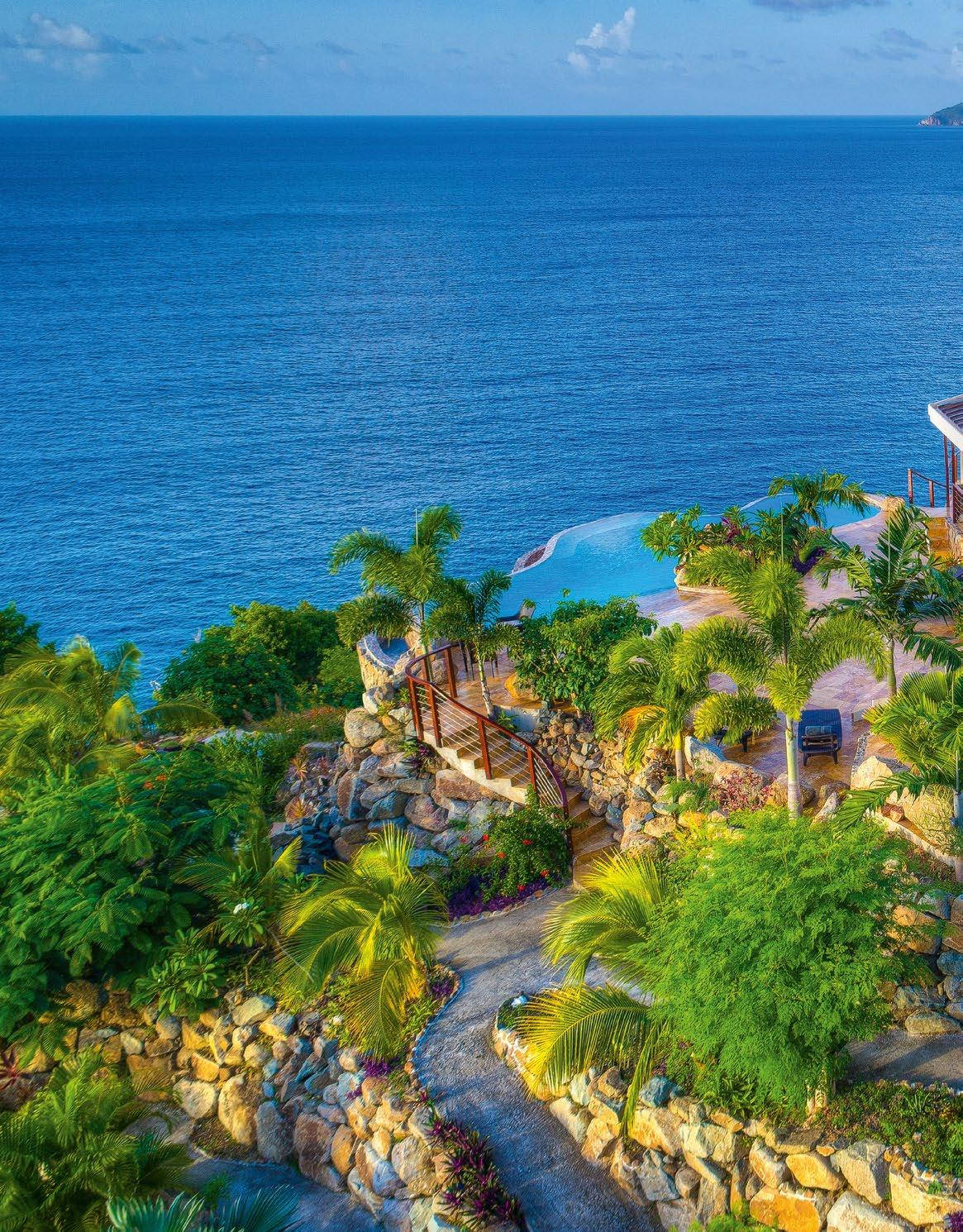
8 minute read
COVID-19 IN THE BVI
How the territory’s government has reacted and responded to the COVID-19 pandemic and what the future holds for the islands
BY: SARA SHERMAN
Advertisement
MUCH OF THE world is beginning to ease restrictions on residents after closed borders, stay-at-home orders and other quarantine-type measures have brought global travel and many economies to a halt. The novel coronavirus (COVID-19) has affected nearly every country on earth, and the BVI was not spared. Due to early preventative measures, however, the spread of the virus has been nominal.
The BVI government released their first statement on 24 January, announcing that they were monitoring the novel coronavirus and its spread throughout the world. On 28 January, the Quarantine Authority was activated as a precautionary measure to limit the spread of the virus in the territory. After the World Health Organization (WHO) declared a Public Health Emergency of International Concern (PHEIC) on 30 January, the BVI released recommendations for safe handwashing and sanitization practices, encouraging residents to avoid contact with people who exhibited flu-like symptoms.
The National Emergency Operations Centre (NEOC) was formally activated by Governor Jaspert at Level 1 on 3 March, expanding the ability of the health sector to coordinate their efforts with the Department of Disaster Management in preparation for dealing with COVID-19. The WHO characterized the spread and severity of COVID-19 to be a pandemic on 11 March.
TIMELINE
24 January - Initial monitoring of COVID-19 announcement made
30 January - WHO declares Public Health Emergency of International Concern, BVI releases handwashing and sanitization recommendations
3 March - National Emergency Operations Centre formally activated
11 March - WHO characterizes COVID-19 as a pandemic
13 March - Travel restrictions announced
18 March - Cruise ships dockings declined for 30 days, school closures announced, visits to hospitals, prisons and other at-risk establishments prohibited or restricted
22 March - More stringent restrictions placed on residents (airports and seaports closed to everyone except freight, non-essential gathering number reduced to 20 people, business curfew announced)
25 March - First two cases of Coronavirus confirmed in BVI
27 March - Mandatory 24-hour curfew in effect until 2 April
30 March - Third case of COVID-19 confirmed
1 April - COVID-19 Action Plan announced, including extending mandatory curfew through 16 April
15 April - Two patients reported recovered from COVID-19
18 April - First COVID-19-related death recorded in BVI, Mandatory curfew extended to 25 April
24 April - Sixth confirmed case of COVID-19 announced
25 April - Inspections of approved private businesses begin, residents encouraged to wear masks in public
27 April - Phased reopening of economy begins
5 May - Seventh confirmed case of COVID-19 announced
After the WHO’s pandemic announcement, the BVI took significant steps to mitigate risk to the territory. On 13 March, the government released at least five different statements outlining steps that would be taken to be prepared for and to combat transmission of COVID-19 in the BVI.
First, the announcement of port and airport closures meant that foreign vessels were only allowed to enter via Road Town and West End, and Port Purcell was the only port accepting and processing cargo. The Auguste George Airport in Anegada and Taddy Bay Airport on Virgin Gorda were also closed at this time so that travellers coming to the BVI by air would only be processed through Terrance B. Lettsome International Airport at Beef Island. A 30-day halt in cruise ship activity also began on 14 March, and any travellers or crew members entering the BVI from a specific list of countries were advised to self-quarantine themselves for 14 days after arrival.
Mass gatherings, including the popular BVI Spring Regatta and the Virgin Gorda Easter Festival, were also cancelled in an attempt to decrease the chances of community spread of the virus.
“After extensive consideration, the British Virgin Islands made the prudent decision to put stringent measures in place to temporarily enhance the protocols for entry into the Territory until 13 April,” said Honourable Andrew A. Fahie, Premier, Minister of Finance & Minister responsible for Tourism in a press release. “It is imperative that we prioritize our limited resources to safeguard our residents and our guests. Tourism is our mainstay and it is important that we take measures to ensure our long-term sustainability.”
The BVI government was also in contact with Baroness Elizabeth Sugg, UK Minister for the Overseas Territories to ensure that the BVI received any necessary help, specifically in working to procure necessary protective equipment and other medical needs.

Other stringent measures for protecting BVI citizens and residents were announced on 18 March, including:
• Prohibiting visits to Her Majesty’s Prison, multiple homes for the elderly and children
• Funerals, weddings and other gatherings being limited to 30 persons
• Schools, preschools daycare centres and extra-curricular activities were cancelled
• No entry into the BVI would be granted to people that were not nationals, Belongers, Work Permit Holders or persons ordinarily resident in the Territory, or their dependents.
• While bars and restaurants were not closed yet at the time of the other restrictions put in place, they were advised to adhere to social distancing guidelines and increased sanitization measures. • Dr. D. Orlando Smith Hospital reduced the number of entrances and limited visitation hours to protect patients and staff.

All cruise ship activity in the BVI was halted as of 18 March. The territory's tourism industry has taken a hit but is optimistic about rebounding soon.
“We know that these guidelines will be difficult on patients, their families and visitors to the Dr. D. Orlando Smith Hospital, however, please bear with us as we seek to put measures in place to reduce our vulnerability to COVID-19 and its impact on our patients,” Chief Executive Officer, Dr. Ronald Georges stated in a press release.
While no confirmed cases of COVID-19 had yet been confirmed in the territory as of 19 March, more than 20 people were under quarantine amid growing concerns of possible exposure from cruise ship passengers only a week earlier.
At least 15 COVID-19 tests had come back negative at that point, but all lab results were and still are to be confirmed by the Caribbean Public Health Agency in Trinidad.
“Together we are fighting an enemy that we cannot see,” stated Premier Fahie in a press release, emphasizing the importance of the curfew.
Just four days later on 22 March, the BVI Airports were closed to inbound traffic for 14 days to further decrease the chances of the virus entering the territory. People were still allowed to leave the territory during certain hours, and cargo and medical flights were still permitted as needed.
On Wednesday, 25 March, the first two cases of COVID-19 were confirmed in the territory. The two individuals had recently travelled to high-risk countries and were tested and placed under quarantine per WHO guidelines. The BVI government announced a 24-hour curfew to be in effect 27 March - 2 April.

Even though the popular BVI Spring Regatta was cancelled, sailors are expected to return to the BVI once the all-clear is given.
The third case of COVID-19 was confirmed in the territory on 30 March. All three cases were confirmed in persons having travelled abroad, and at the time there was no indication of community spread in the BVI.
Six cases were confirmed in the BVI as of 24 April, while a seventh was announced 5 May.
“Case number 7 is linked to a previously detected case was quarantined and had tested negative on the first protocol of testing. It is common that in the early stages of infection the virus that causes COVID-19 could go undetected,”
Deputy Premier and Minister for Health and Social Development Honourable Carvin Malone explained in a news release. He added, “In this regard, the person was kept under quarantine for the full duration of the incubation period, and was re-tested in accordance with established protocols. This patient has exhibited only mild symptoms and will be kept in isolation.”

BVI Health Minister Honourable Carvin Malone activated the Quarantine Authority on 28 January as a precautionary measure in response to COVID-19.
Even in the light of the most recent confirmed case, the territory is continuing to reopen businesses and beaches will be open from 6 am to 1 pm for “exercise and therapy”. Community & Future The BVI remains tight-knit amidst unprecedented conditions and the community once again has come together to support one another. From a 10,000-piece medical equipment donation by Bank of Asia to handwashing stations popping up throughout the islands, the BVI once again demonstrates that in times of crisis, the people of the BVI demonstrate that in times of crisis, everyone is helping their neighbours. Government and local organisations also pulled together to make sure food was delivered to those in need, and assistance was offered so that farmers and fisherfolk could sell or deliver their wares in a safe way.
The tourism industry has taken a significant hit in light of the virus as well. However, the BVI continues to be a popular destination for travellers from around the world, and as the global community continues to reopen, the tourism sector is optimistic about the future.

Premier and Minister of Finance, Honourable Andrew A. Fahie gives a press conference wearing a face mask.
Premier Fahie stated in a news release, “Our tourism industry has faced many crises before, from natural disasters to epidemics, and we have always come out strong on the other side. After much anticipation, we are at the start of a big celebratory year as many of our beloved resort products are finally reopening following extensive rebuilding. We also expect this summer to be busy in the BVI with the rerouting of cruises and airline service in and around the Caribbean.”
While BVI borders remain closed to inbound travellers at this time, Belongers and other residents may enter via Terrance B. Lettsome International Airport starting 2 June. The BVI is advised that hurricane season is not far off and that all necessary precautions and preparation should begin as soon as possible.

His Excellency the Governor Augustus J. U. Jaspert and other BVI officials activated the National Emergency Operations Centre on 3 March.



